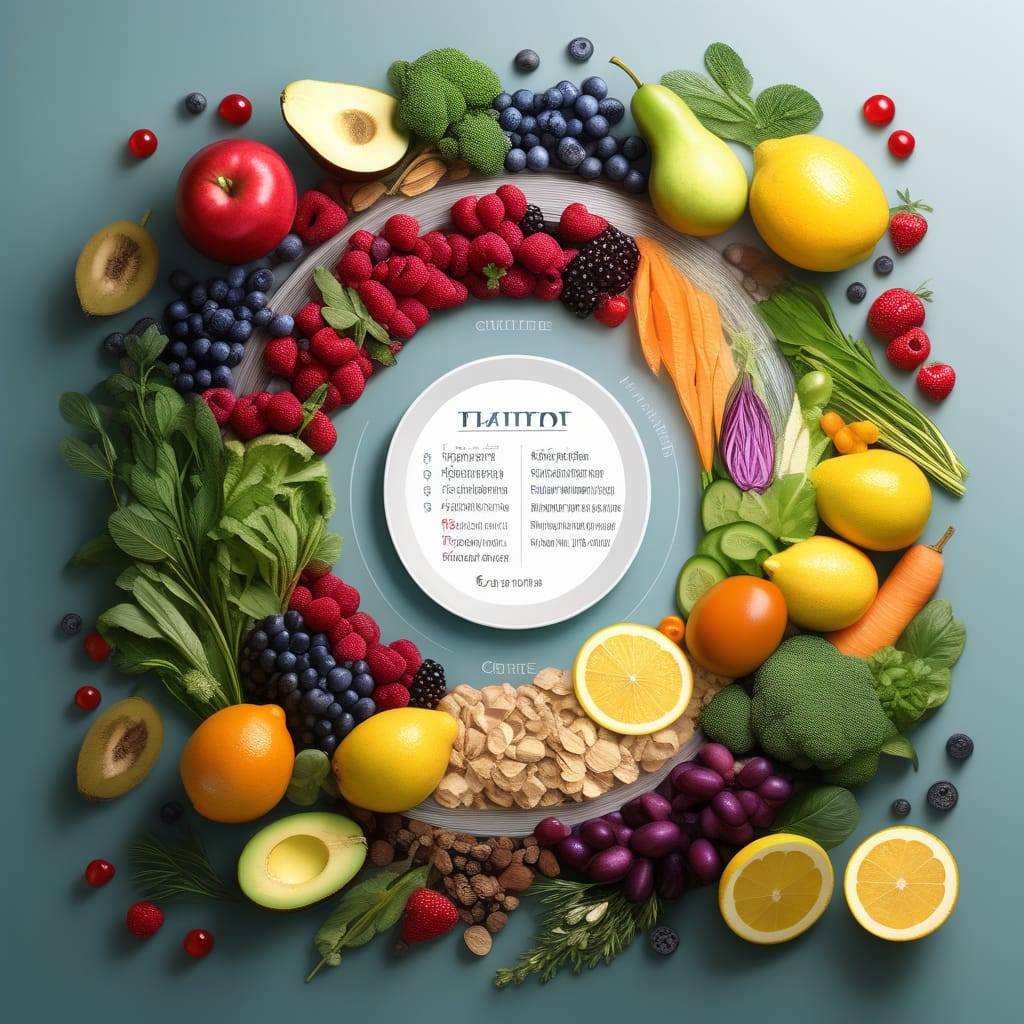Welcome to Nutrition Tip Tuesday, where we explore practical and evidence-based tips to enhance your well-being through healthy eating. In a world filled with dietary trends and conflicting advice, it’s essential to focus on sustainable, balanced nutrition. Let’s dive into key principles that can guide you on your journey to optimal health.

Table of Contents
Balanced Plate, Balanced Life
Creating a balanced plate is a fundamental principle of healthy eating. Aim to include a variety of food groups in each meal: fruits, vegetables, lean proteins, whole grains, and healthy fats. This ensures a diverse range of nutrients, promoting overall health and preventing nutrient deficiencies.
Color Your Plate
The vibrant colors of fruits and vegetables signal the presence of various vitamins, minerals, and antioxidants. Incorporate a rainbow of produce into your meals to maximize nutritional benefits. For example, dark leafy greens provide iron and calcium, while orange and yellow vegetables offer vitamin A.
Mindful Eating
In our fast-paced lives, it’s easy to rush through meals without paying attention to what and how much we’re eating. Practice mindful eating by savoring each bite, chewing slowly, and paying attention to hunger and fullness cues. This can help prevent overeating and improve digestion.
Hydration Matters
Staying well-hydrated is crucial for overall health. Water supports various bodily functions, including digestion, temperature regulation, and nutrient transport. Aim for at least eight glasses of water a day, adjusting based on factors like physical activity and climate.
Choose Whole, Unprocessed Foods
Opt for whole, minimally processed foods over heavily processed options. Whole foods retain their natural nutrients and fiber, providing sustained energy and promoting satiety. Limiting processed foods also helps reduce the intake of added sugars, salt, and unhealthy fats.
Prioritize Protein
Protein is a key component for building and repairing tissues. Include a variety of protein sources such as lean meats, poultry, fish, eggs, dairy, legumes, and plant-based sources like tofu and quinoa. Distribute protein intake throughout the day to support muscle maintenance and satiety.
Healthy Fats are Essential
Not all fats are created equal. Choose sources of healthy fats, such as avocados, nuts, seeds, and olive oil. These fats support brain health, hormone production, and the absorption of fat-soluble vitamins. Limit saturated and trans fats found in processed and fried foods.
Mind the Portions
Understanding portion sizes is crucial for maintaining a healthy weight. Use visual cues or measuring tools to avoid overeating. Be mindful of portion distortion – large plates and serving sizes can lead to consuming more calories than needed.
Plan and Prep Ahead
Busy schedules often lead to unhealthy food choices. Take time to plan your meals, create a grocery list, and prep ingredients in advance. Having healthy options readily available reduces reliance on convenience foods and helps you make nutritious choices.
Listen to Your Body
Every individual is unique, and dietary needs vary. Pay attention to how your body responds to different foods. Experiment with various eating patterns, such as intermittent fasting or mindful eating, and find what works best for you.
Moderation, Not Deprivation
Balanced nutrition is about moderation, not deprivation. Enjoy your favorite treats occasionally, but be mindful of portion sizes. Depriving yourself can lead to cravings and overindulgence later on. Savor special treats in moderation to maintain a healthy relationship with food.
Read Food Labels
Understanding food labels empowers you to make informed choices. Pay attention to serving sizes, nutrient content, and ingredient lists. Be wary of hidden sugars, excessive sodium, and artificial additives. Choose products with simple, recognizable ingredients.
Stay Active
Physical activity complements healthy eating for overall well-being. Aim for a mix of cardiovascular exercise, strength training, and flexibility exercises. Regular activity enhances metabolism, supports weight management, and improves mood.
Get Adequate Sleep
Quality sleep is an often overlooked aspect of a healthy lifestyle. Lack of sleep can affect appetite-regulating hormones, leading to increased cravings and overeating. Aim for 7-9 hours of quality sleep each night to support overall health.
Consult a Professional
If you have specific dietary concerns or health conditions, consult a registered dietitian or healthcare professional. They can provide personalized guidance based on your unique needs, ensuring you make choices that align with your health goals.
Conclusion
Nutrition Tip Tuesday is a reminder that small, consistent changes in your eating habits can have a significant impact on your health. Embrace a holistic approach to nutrition, focusing on balance, variety, and moderation. Remember, there’s no one-size-fits-all solution, so listen to your body and make choices that align with your individual needs and goals. Here’s to a healthier, happier you!
What is the importance of balanced nutrition?
Balanced nutrition provides essential nutrients for overall health, supporting energy, and immunity, and preventing nutritional deficiencies.
Why is hydration important for health?
Hydration is vital for bodily functions, including digestion and nutrient transport. Aim for at least eight glasses of water daily.
What are healthy protein sources?
Include lean meats, fish, poultry, eggs, dairy, legumes, tofu, and quinoa in your diet for a diverse range of protein.
Which fats should I prioritize in my diet?
Opt for healthy fats found in avocados, nuts, seeds, and olive oil. Limit saturated and trans fats from processed and fried foods.
What is the significance of sleep in a healthy lifestyle?
Quality sleep (7-9 hours) supports appetite regulation, mood, and overall well-being.






